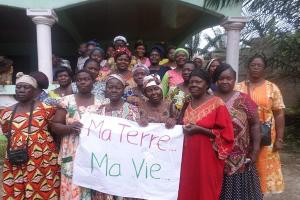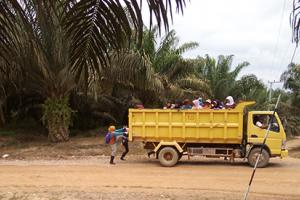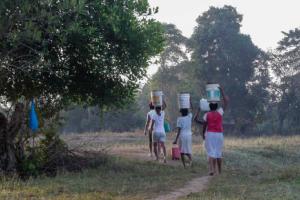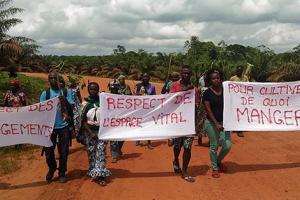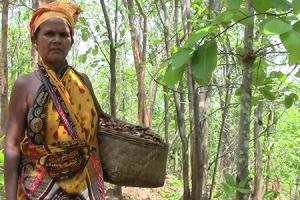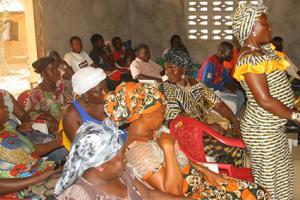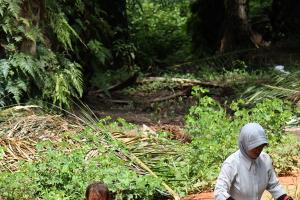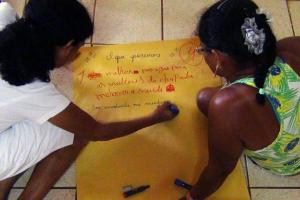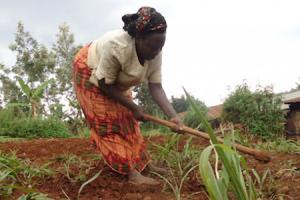Women and Tree Monocultures
Sexual violence and loss of access to land and water are specific impacts that women face when large-scale tree plantations take over community land. Once established, these industrial plantations interfere with food production and women's ability to move freely on their own land. That is why in many places affected by industrial tree plantations, women take the lead in organizing their communities and defending their territories.
From rapes, forced body searches and searches of private spaces, to the risk of losing their lives: this article calls on us not to be accomplices to the violence women living around tree plantations in Cameroon suffer.
The expansion of oil palm plantations in Indonesia has turned women into landless food buyers and cheap labour, with no adequate safety and health protection, for the plantation companies. (Available in Indonesian).
Contamination of water sources, deplorable working conditions, and sexual blackmail in exchange for work, are some of the kinds of violence against women living in and around oil palm plantations in Guatemala and Colombia.
A woman from the village of Mbonjo 1, Cameroon, which has witnessed the impact of industrial palm oil plantations and the constant presence of the military, calls for international solidarity and protection of right to life and freedom.
India’s programme to compensate for the destruction of forests for development projects is routinely setting up monoculture tree plantations on community commons. Women, who are mostly affected, are at the centre of its resistance.
The voices and stories of forest-dependent women are often rejected, unheard or silenced, which makes it easier for companies to grab community land. But what happens when they start to raise their voices?
Women suffer many types of violence committed by oil palm plantations companies’ employers, security forces, police and military, which subsequently reinforce patriarchy and their roles and relations within society in general. (Available in Indonesian).
The organization and sexual division of labor and job insecurity in single crop activities affect the health of female workers and territorial changes derived from this model of production directly affect women.
Covered under the shade of oil palm companies in Cameroon: A recount of the abuses that women suffer
Plantations are increasingly surrounding and engulfing communities. Women must walk through company-occupied lands in order to seek their livelihoods. This, among other things, can cost them their lives.
